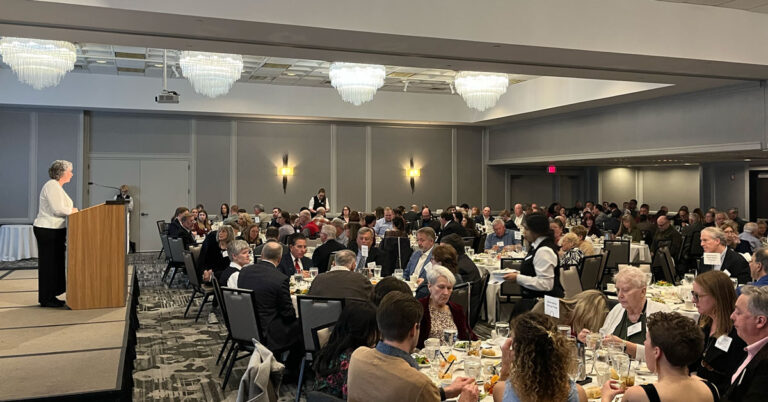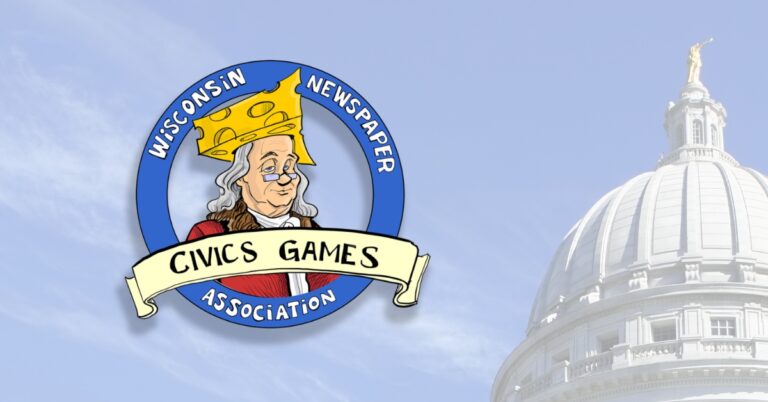When then-Gov. Jim Doyle signed Wisconsin’s indoor smoking ban into law in 2009, he expected tribal nations, which were exempt from its provisions, to embrace the measure on their own.
But fast-forward 10 years and just one tribal-run casino in the state is smoke-free. That’s despite health officials highlighting a host of statistics that show the ban’s pronounced impact on public health.
Tribal casinos say they’re open to making accommodations for non-smokers, but most tribal officials remain wary of what they think their clientele’s reaction to a ban would be.
May 18 marked 10 years since Doyle signed Act 12 into law, a measure that made bars, restaurants and workplaces smoke-free.
“I think the last decade has gone really, really well,” Doyle told WisPolitics.com recently. “I don’t think people can even imagine going back to where we were beforehand.”
Michael Fiore, founder and director of the UW Center for Tobacco Research and Intervention, pointed to everything from a 15 percent drop in adult smoking rates to public opinion polls showing broad support for the measure to a decrease in upper respiratory tract symptoms among bartenders.
Data from the Centers for Disease Control and Prevention and localized reports from the Wisconsin Department of Health Services and the Center for Urban Population Health and UW-Milwaukee all report a downturn in smoking rates among adults in the state since the ban went into effect. Fiore calls that a “giant win for both individual health and public health.”
“Now, of course, one cannot say that all of this decline is a result of the smoking ban, but the smoking ban is one of the foundation stones that have contributed to declining smoking in Wisconsin,” Fiore told WisPolitics.
But Native American-run casinos have been far slower to embrace the smoke-free movement. At the time the legislation was passed, Doyle said he believed the casinos — whose tribal sovereignty exempts them from the ban — would take the measure up voluntarily.
But shortly after passing the decade mark, Ho-Chunk Gaming Madison remains the only smoke-free casino in the state.
“I think I probably would have expected more to be honest,” Doyle said.
Missy Tracy, the municipal relations coordinator for Ho-Chunk Gaming Madison, touted the 2015 move to go smoke-free and said that despite an initial dip, it’s made a positive financial impact.
“We hung in there, stuck it out and shortly after the first year of being smoke-free, we started to see our revenue actually do better than where (it was) when we were a smoking facility,” she said.
According to Tracy, the Madison casino was persuaded to ban smoking after a survey of its guests showed an overwhelming majority wanted to game in a smoke-free environment. The facility is now the most profitable Ho-Chunk casino in terms of net gaming revenue.
Despite that success, a number of tribes recently told WisPolitics.com they are still reluctant to go completely smoke-free. Several noted that positive results in Madison would not necessarily translate to more rural areas of the state where the clientele has grown accustomed to smoking while gaming.
But those concerns have to be balanced with creating a comfortable environment for those who don’t smoke, according to Bobbi Webster, the director of public relations for the Oneida Nation.
“The compromise has been to create smoke-free environments within the casino so that customers have the opportunity to sit and play and entertain themselves in areas where there’s no smoking allowed,” she said.
The Oneida Nation’s casinos have installed air filtration systems to combat the smoke, and a WisPolitics.com check of tribal gaming facilities in the state shows that roughly half have followed suit and designated smoke-free areas on their gaming floors.
But Doyle said he believes those measures are more sizzle than steak.
“None of that stuff ever worked,” Doyle said. “Restaurants tried to do it and others over the years and it just isn’t very effective.”
Doyle said the Tavern League of Wisconsin fought bitterly against the measure, but the organization’s executive director, Pete Madland, conceded in an interview with WisPolitics.com that his members have “adjusted and moved on.”
But Madland said at the time the legislation was passed, the Tavern League had “a lot of members have to close their doors as a result.” He noted his organization saw a drop in membership among establishments holding the wide-ranging “Class B” license. However, he could not point to data explicitly linking that decline to the smoking ban.
For more, visit WisPolitics.com
The Capitol Report is written by editorial staff at WisPolitics.com, a nonpartisan, Madison-based news service that specializes in coverage of government and politics, and is distributed for publication by members of the Wisconsin Newspaper Association.
Copyright © WisPolitics.com



